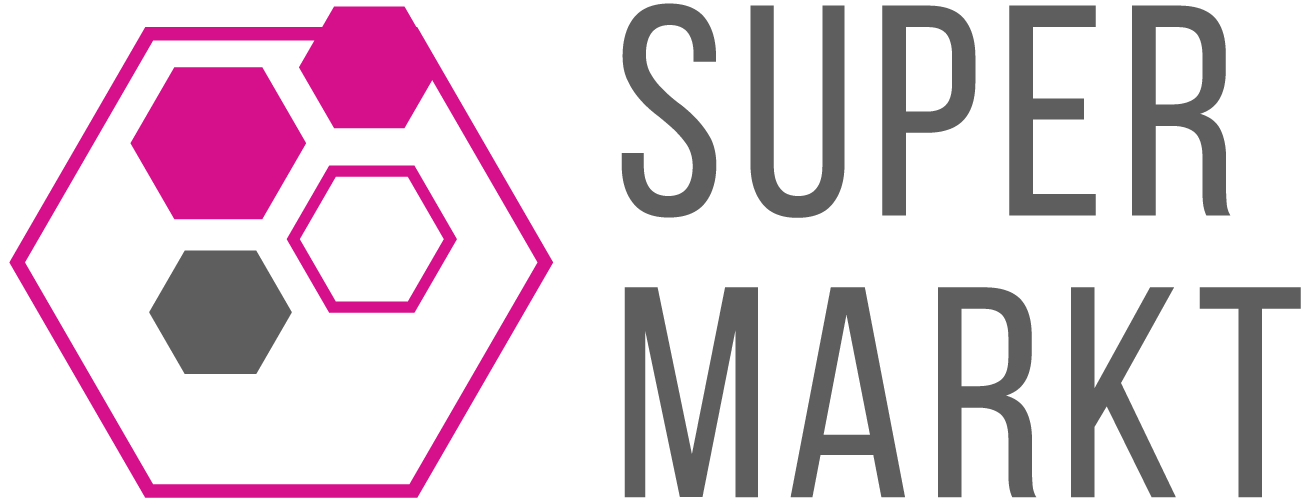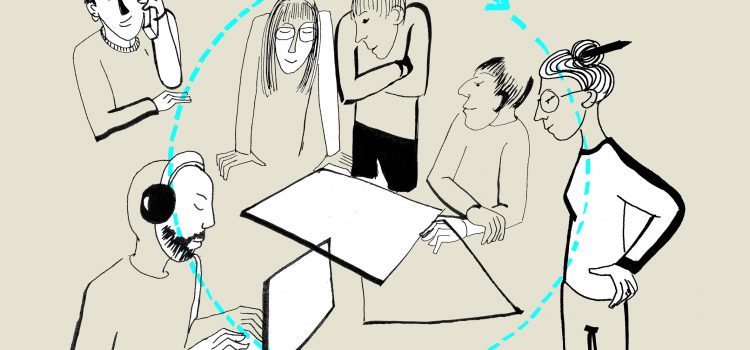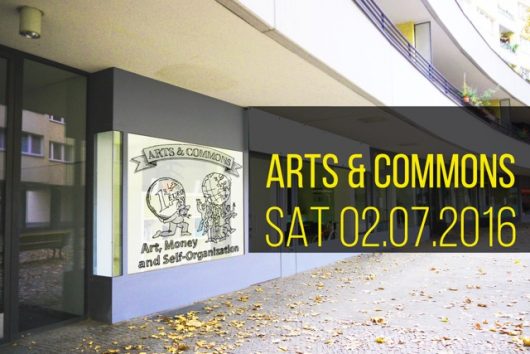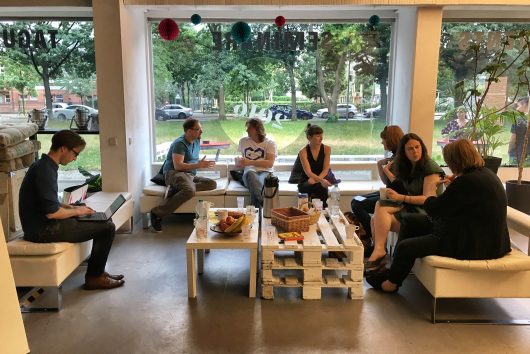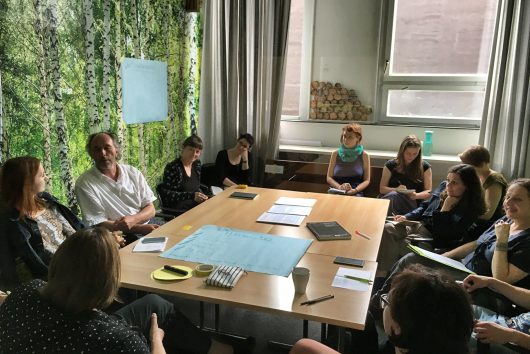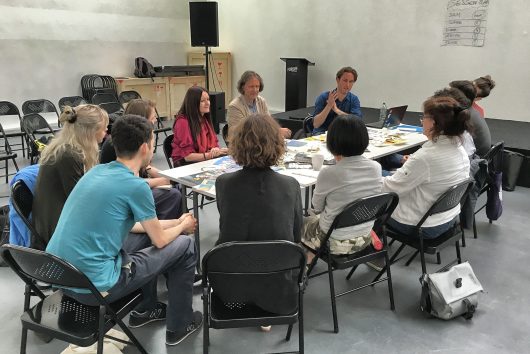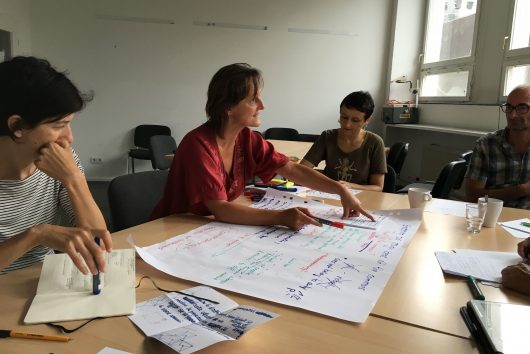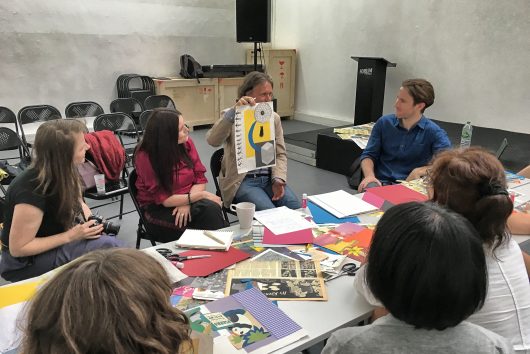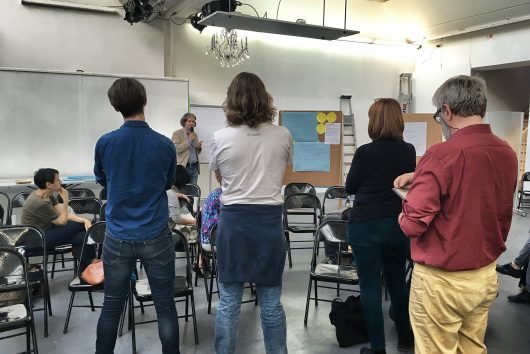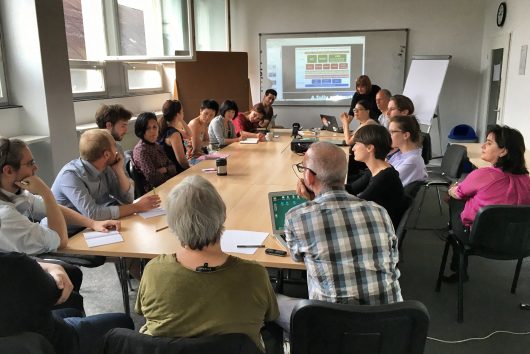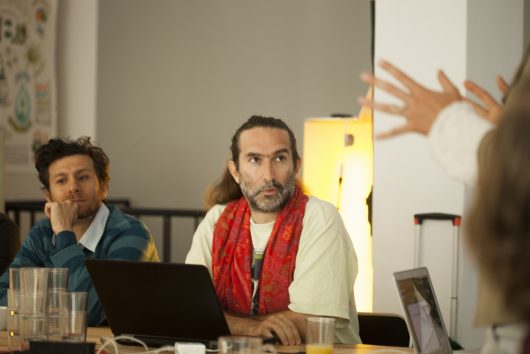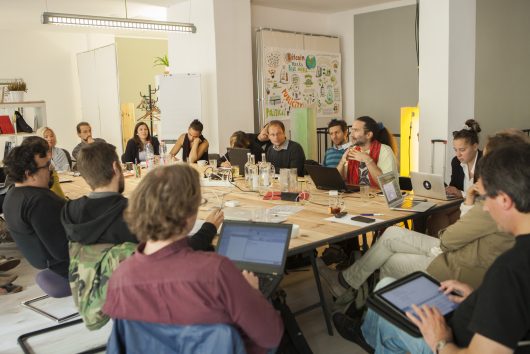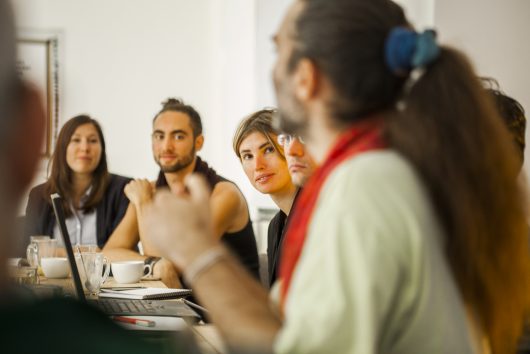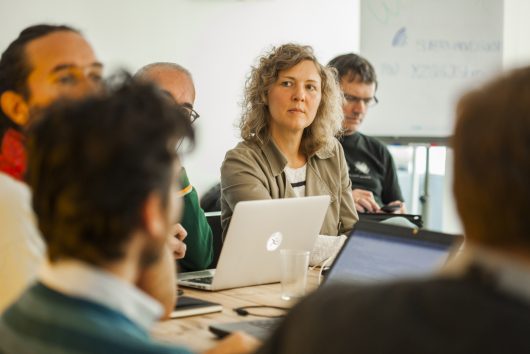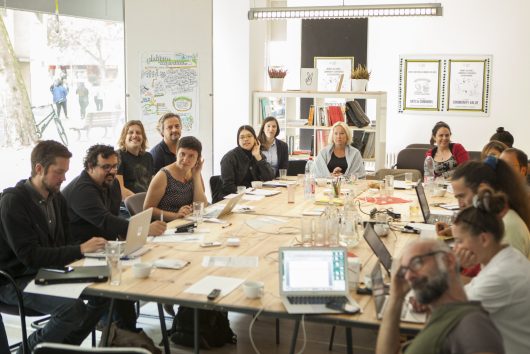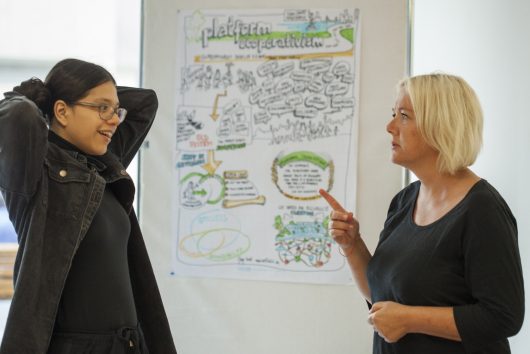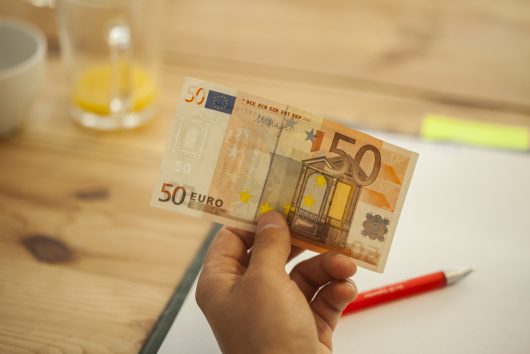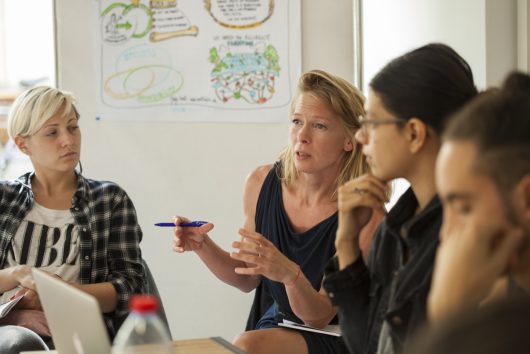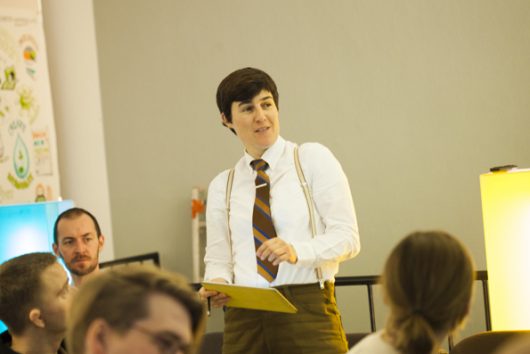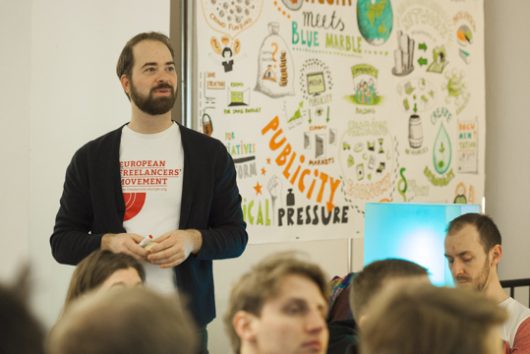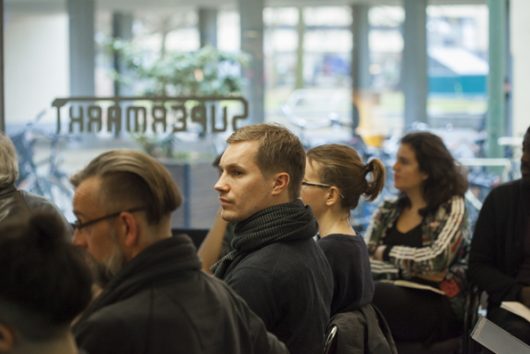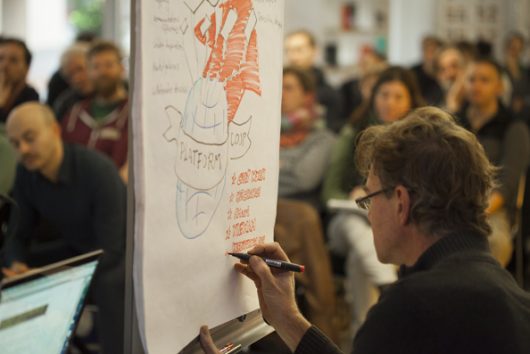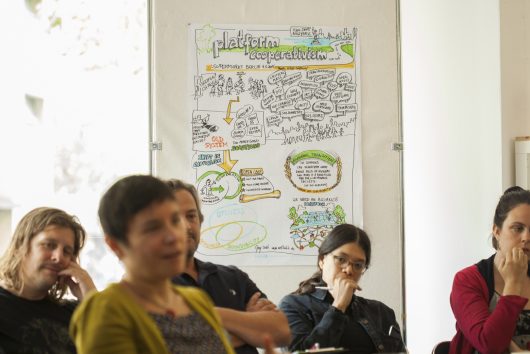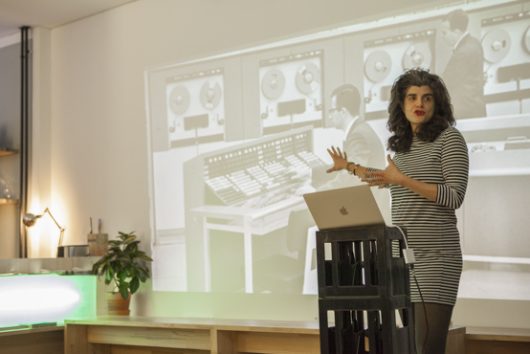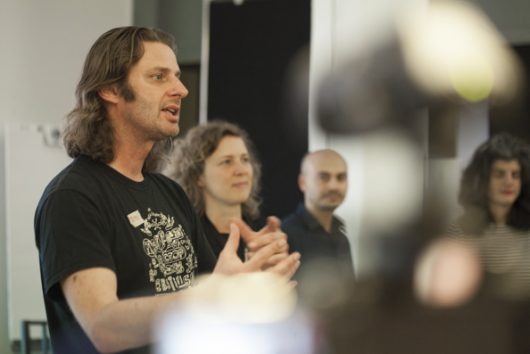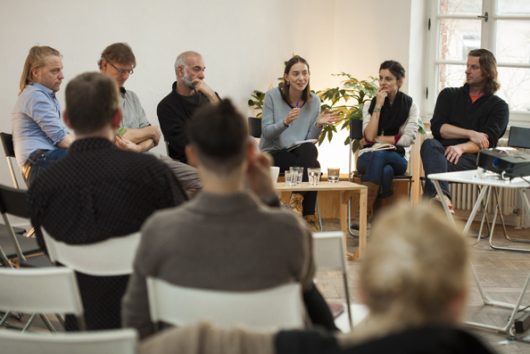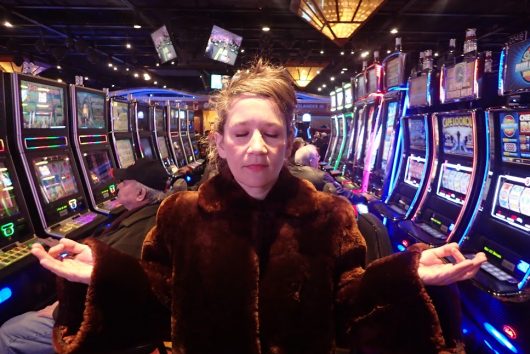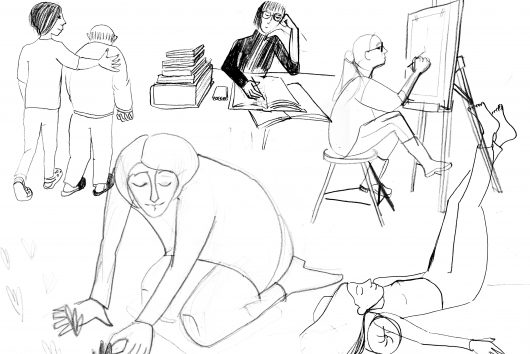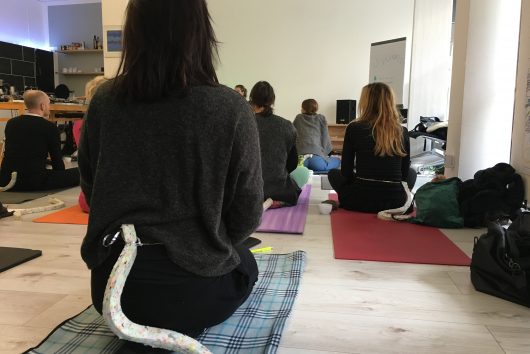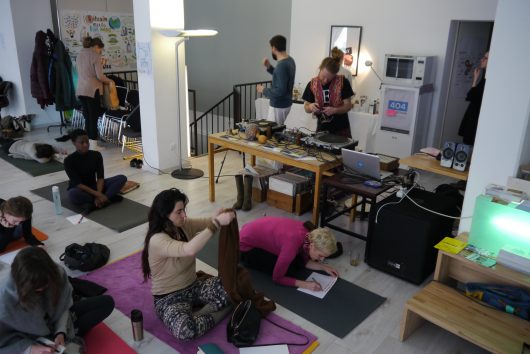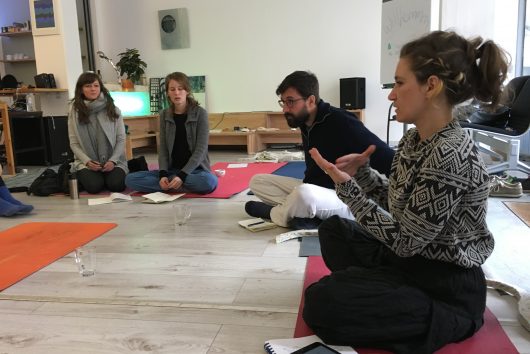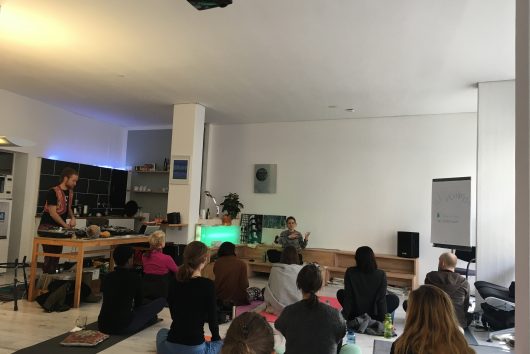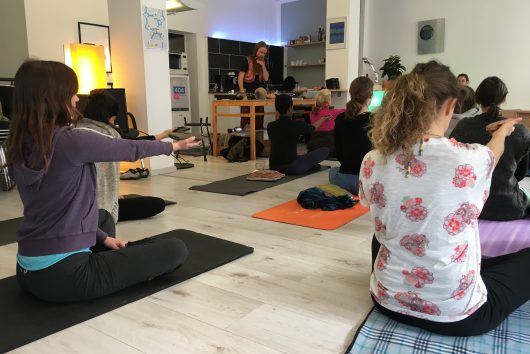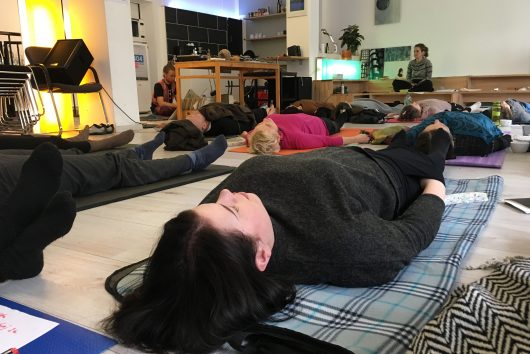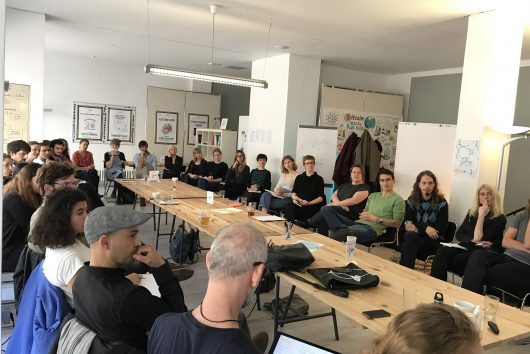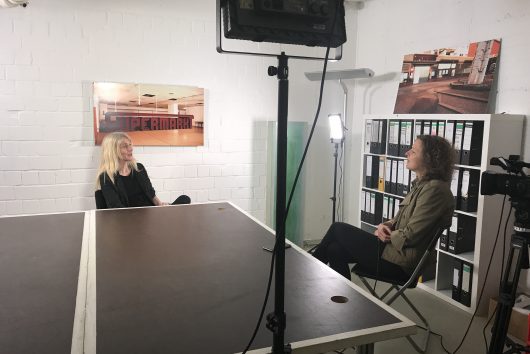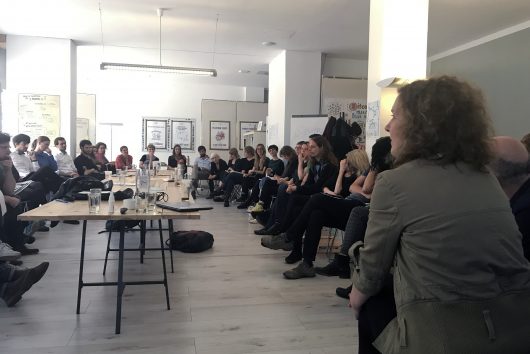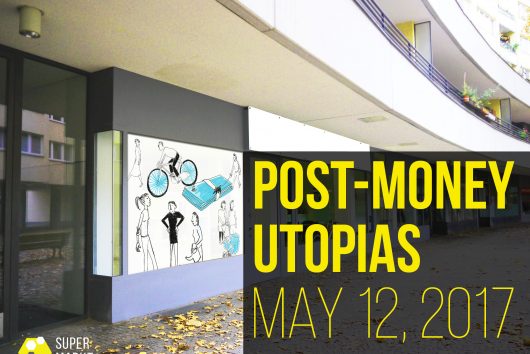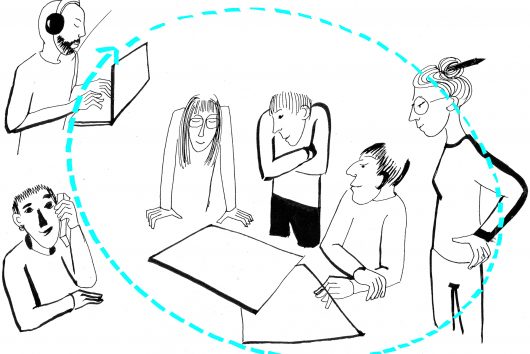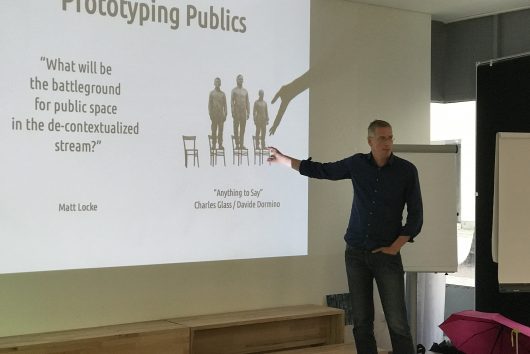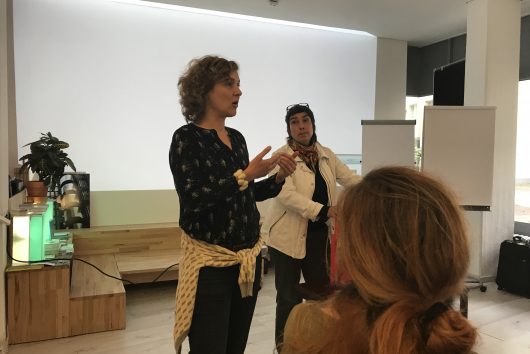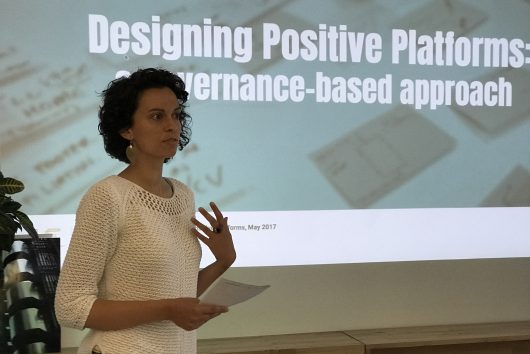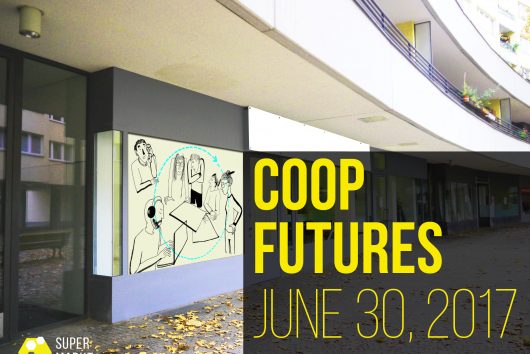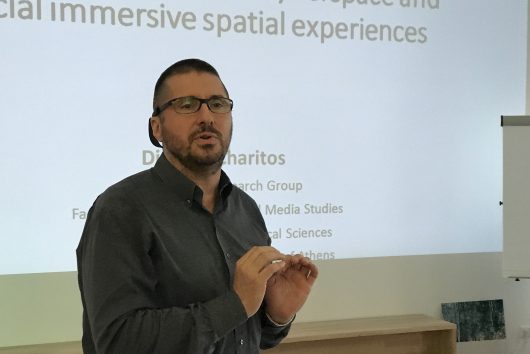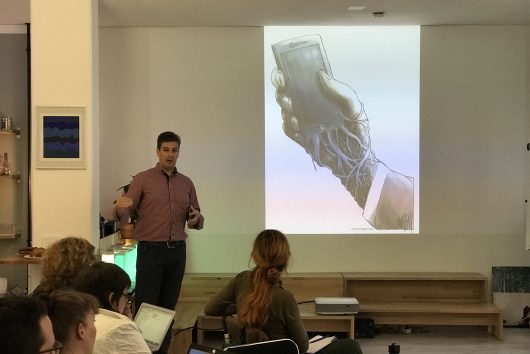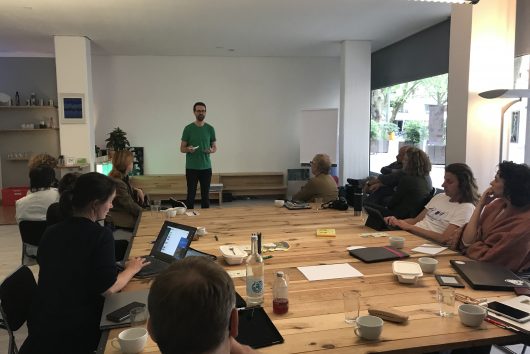Arts & Commons was an event series based on new financial technologies, peer to peer-economies, digital networking and the impact on artistic production. The labs and workshops were taking place between 2016 and 2017 at SUPERMARKT, Forum Factory and Agora. The project was supported with funds from the Cutural Senate of Berlin. 46 artists and experts from all over the world presented their personal take on financing and value creation of cultural & artistic projects through means of collaboration, commoning and making intelligent use of emerging digital technologies & practices.
Curatorial Statement
Welcome to the era of Digital Capitalism! The production of goods is no longer a priority. Instead, digital information is becoming the prime asset of today’s economy. Networked platforms have replaced the factories of the industrial age. Traditional standards of production, work and value are currently being reconfigured. Even our understanding of social values, aesthetics and culture is increasingly shaped by the new paradigms of digital economy.
What are artists’ responses towards this ground shaking dynamics which hasn’t just captured the realm of economy, but our society at large?
Financial technologies are based on digital communities, on creativity, communication, collaboration – all also crucial factors in artistic production. In the arts, however, there is often a lack of both financial funds as well as technical skills which prevents artists from accessing these new technologies and making use of their benefits. And this is true even though technologies like Blockchain, in particular, could be interesting for artists because they offer a whole new approach to issues like copyrights, co-production and the trade and sale of artworks.
The Hunger Artist
Artists are very much used to fight for project sponsors and hardly a day goes by where artists do not have to think about the value and the price of their work. Most of the time, these issues are discussed behind closed doors or result in the same old fruitless debate about the lack of state subsidies. But no matter how much the state supports artists, funds gained by project financing (which is what most state subsidies are at the end of the day) will never be enough to create sustainable living for artists in the long term. Like in Kafka’s “The Hunger Artist” there are always just enough to get by.
Social Capital
You have no one but yourself to blame if you brood over your problem all by yourself and slowly give up. There are so many good opportunities nowadays that help you benefit from assets within your own circle of friends: crowdfunding, couchsurfing, crowdsourcing, professional sharing and exchanging. There is a multitude of social transaction out there – capitalise on that. However, as interesting as some of these opportunities are, they all have one basic problem: They are mostly one-off, transaction-based systems that only allow you to participate if you yourself have something to offer. In order to sustain yourself on the market of crowdfunding, you need a lot of time, good connections and communication skill on a professional level. Otherwise you will certainly wait in vain if you expect money being thrown at you.
System Failure or Depression?
Money, knowledge and the access to innovative technologies are not distributed democratically (anymore). On the one hand, these resources are crucial for one’s livelihood, on the other hand, they are important prerequisites for innovation, development and the corresponding participation in a social debate. This realisation causes more and more artists to start self-organizing. The more you share with each other, the more obvious it becomes that being ashamed of precarious living conditions, a lack of followers or other social capital is, in fact, not just your fault, but also a symptom of crumbling structures. Feeling embarrassed weakens individuals in the long term. Collective and productive anger, however, paves the way for empowerment. The system is broken – let us build a new system.
Who decides what is discussed in society nowadays?
Start-ups, companies or artists? Who develops new visions of co-living and co-working?
Who tells the story of our time?
Currently, movements at the interface between art, economy and political self-organisation develop all over the world: new forms of cooperativism, like the Platform Cooperativism movement headed by Trebor Scholz, Professor at the New School in New York. Cooperatives are founded and alternative political movements like #DIEM25, Podemos or a large number of local Occupy offshoots are becoming more and more influential. And there is an ever-increasing number of artists’ collectives or cooperatives, for example for freelancers or freelance artists.
In the varied concepts and approaches surrounding the idea of the Commons, there are plenty of interesting examples of sharing of resources, of self-empowerment, solidarity and co-production to be found. The idea of the Commons as common property and/or common welfare refers to common possession and common use of everything that human societies need in life. This includes goods like air, water and public spaces as well as education, culture or art.
Art as Commons
Is it possible to create a common structure that grows and gains value with every interaction, conversation or event? A growing ecosystem that helps strengthen its member over time?
Overview of the labs:
Arts & Commons: Sa, July 2nd 2016/ Forum Factory Berlin
Our launch event was focused on the development of commons-based economies within the Berlin arts scene. What are the options of building self-organized infrastructures that generate more independence, variety, justice and autonomy among artists? On July 2nd, artists, hackers, commons-experts and collaborative economy insiders have worked on a model for a commons for arts – together with you!
Many thanks to:
- Wibke Behrens, cultural scientist and spokeswoman of the Kulturpolitischen Gesellschaft & Koalition der freien Szene
- Sophie Bloemen, activits, consultant and co-founder of the Commons Network
- Ruth Catlow, artist, curator and co-director of Furtherfield.org
- Thomas Dönnebrink, OuiShare connector, collaborative finance expert
- Silke Helfrich, commons activist, writer and Commons researcher
- Sam Muirhead, Free/libre open source activist and artist
- Dmytri Kleiner, software developer, artist, founder of Telekommunisten Kollektivs
- Chelsea Robinson, community builder at Enspiral Network
- Elena Veljanovska, freelance curator
- Krystian Woznicki, journalist, curator & chief editor and founder of Berliner Gazette
Community Value – 23.-24. September 2016
Two days workshop on money cultures, community currencies and the role of blockchain technologies for creative production & distribution. We enjoyed presentations, hands-on exercises, inspiring showcases and a currency lab-game on Friday night!
Program infos and speaker overview here.
Please check our photo documentation by Luly Glez here.
Many thanks to:
- Lenara Verle, artist and researcher with a focus on community und collaboration, founder of Coinspiration)
- Matthew Slater, community currency engineer, co-founder of Community Forge
- Francesca Pick, OuiShare connector, writer and speaker on Collaborative Finance & Social Change
- Genevieve Parkes, member of Enspiral, software developer
- Leopold Wonneberger, economist of the regional money initiative Spreeblüte (now FAIRO)
- Peter Harris, founder of the music streaming collectives Resonate Coop
- Jazmina Figueroa, artist and researcher on decentralised technologies and artists’ rights
- Greg Mcmullen, lawyer and director of the IPDB Stiftung and chief policy officer for BigchainDB GmbH
- Sven Laepple, founder of Astratum
Platform Coops – Start your own! 9.-10. Dezember 2016. At SUPERMARKT & AGORA.
This event aimed at gathering key players of the platform cooperativism movement in Berlin to explore shared values, common goals and a political agenda. Also, we wanted to encourage individuals and networks to think about creating their own cooperative structures. In various workshops, people could learn the skills and tools to just do it. These two days were all about joint ownership, democratic control and self-organization, with a focus on blockchain technologies to enable the bootstrapping of decentralized organizations. Please check our event page for detailed information about the event, speakers and the program.
Eventsite with program info and speaker overview:
http://www.supermarkt-berlin.net/event/platform-coops-start-your-own/
Documentation website: https://platformcoopsgermany.wordpress.com/
photo documentation: https://www.flickr.com/photos/supermarkt_berlin/albums/72157677767880146
Thanks to:
Jana Stecher (CZY WRK), Felix Weth (Fairmondo), Magdalena Ziomek (SMART), Simon Liedtke (WeChange), Christophe Guené (Kreditunion Coop), Katja Wegner (Wigwam), Daniel Corral (Coliga), Juho Makkonen (Sharetribe), Yael Sherill (B-Tour), Philipp Hentschel (welance), Sito Veracruz (Fairbnb), Damiano Avellino (Solbnb), Arthur Röing Baer (commune), Louisa Janitschke (FAIRO), Christian Hildebrand (Jolocom), Adrien Labaeye (Transition Lab), Dr. Nadine Müller (Verdi), Boris Janek (Akademie Deutscher Genossenschaften ADG), Victor Matekole, (Crowdfunding system for platform coops & Resonate Music Streaming Coop) Juho Makkonen (Sharetribe), Shermin Voshmgir (Blockchain Hub), Dominika Wruk (Institut für Mittelstandsforschung),), Laura Colini & Lorenzo Tripodi (Tesserae Urban Social Research), Joy Lohmann (Open Island), Gabriela Masfarré Pintó & Georgina Campins (Ideas for Change), Volker Siems, (neighbourhood network Polly & Bob), Eugenio Battaglia (Platform Design Toolkit).
Feminist Economics Seminar, 25. Februar 2017 at SUPERMARKT
With Cassie Thornton of the Feminist Economics Department. This was a day-long seminar about feminist economics, the practice – not the social science. In contrast to conventional conferences on the topic, this seminar was twisted into the form of a yoga class to better question and challenge the rule of money, individualism, obedience, and patriarchy over our individual and collective bodies.
More infos and event website here: http://www.supermarkt-berlin.net/en/event/feminist-economics-seminar/
Thanks to Cassie Thornton!
Post-Money Utopias, 12. Mai 2017, SUPERMARKT
As the global financial crisis proceeds, not only the capitalist system is being questioned, but also money itself.
More and more people start to explore alternative metrics for value transactions, trade and service exchange. They seek to value and reward work that benefits society (through services, products, care or investments), that is normally not recognized by the monetary economy. Community currencies are on the rise, as well as barter systems, time banks or different forms of resource-based economies.
So far, only individuals or small communities live the moneyless life. Nobody knows how this could work on a larger scale, for instance in a city. Is it possible to scale trust? Is bartering better than money exchange? Is resource sharing equivalent to democratic control? And does a gift economy automatically lead to more equality, freedom and solidarity?
Find more info about this event and our list of amazing speaker here!
http://www.supermarkt-berlin.net/event/post-money-utopias/
Thanks to:
- Martin Batta-Lochau, Economy of the Common Good, Berlin-Brandenburg
Focus: Solidarity Economy, Ecological Sustainability, Social Justice - Arne Bollinger, founder of the Gift Economy-Plattform Ecobasa
Focus: Gift Economy, Communities, Local Networks - Friederike Habermann, economist, writer and researcher
Focus: Commons-based Peer-Production - Pierre Lischke, nomad, blogger, coach
Focus: relation-based gift-income - Georgia Nicolau, founder of Procomun Sao Paolo, Brasilien
Focus: Commons, Peer-Production, Cooperative Businesses - Nina Treu, co-founder of the Konzeptwerk Neue Ökonomie
Focus: post-growth societies, degrowth, group processes - Ewoud Venema, Blogger, initiator of “Vrij met Geld” and author of “Step into Creation: Guidebook for a co-creative universe”
Focus: moneyless life, co-creation. - Noel Wigdor, CEO and founder of Jaspr
Focus: exchange systems, moneyless transactions - Lino Zeddies, board of Monetative e.V.
Focus: Money Reform, Currency Systems, Money Utopias
Coop Futures, 30. Juni 2017 at SUPERMARKT
This Art & Common’s closing lab was dedicated to the following topics: Governance of platform coops, Data Protection & Security, Diversity and Infrastructures for Cooperation. Together with our guests, we wanted to find out more about the potential of cooperativism in today’s digital ecosystems. What are the issues we need to tackle into in order to make the platform coop-movement sustainable?
This lab was produced together with Soenke Zehle from xm:lab and K8.
Event Informationen and speakers’ overview here http://www.supermarkt-berlin.net/event/coop-futures/
Many thanks to:
- Alícia Trepat Pont, New Economy Professional, Economy of the Common Good,Vienna and Barcelona
- Dimitris Charitos, Faculty of Communication and Media Studies at the University of Athens
- Peter Harris, Gründer & CEO of Resonate Music Streaming Collective, Berlin
- Csaba Gyorsok, Senior Developer at CG Codes
- Alex Pazaitis, P2P Lab, Ioannina, Greece
- Annette Mühlberg, Projektleitung Digitalisierung bei Verdi Berlin
- Sarah Ledant, SMartBE
- Soenke Zehle, xm:lab & K8 Institut für strategische Ästhetik gGmbH, Saarbrücken
